Revolutionary Initiative: "We've Found the Way to Prevent Talking During Prayer"
Unique posters and cards distributed throughout Eilat reveal a special initiative to prevent talking in synagogues. But who is behind this movement?
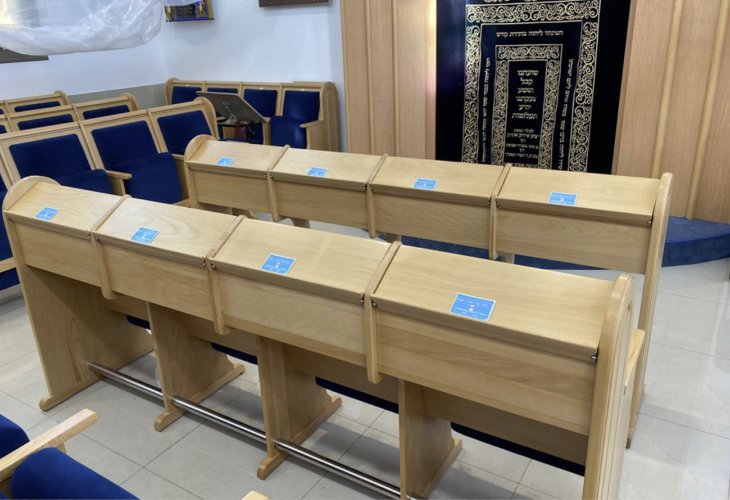
"For a long time, I've been trying to think of ways to make people aware of the importance of avoiding talking during prayer. I don't want to offend or condemn, but it's clear to me that not everyone is aware, and this creates many problems."
Surprisingly, the speaker is a Jew living in the city of Eilat. "I prefer not to reveal my name," he says, "It's better if my efforts remain behind the scenes."
It's surprising not only because he is from Eilat, a city not known for its spiritual connection to Judaism, but also because in the past he wasn't involved in religion-related matters. Only in recent years did he become more observant, and now he regularly attends synagogue services. "I tried to find a way to strengthen the respect for the synagogue without condemning or offending the congregants," he says, "and thus came the idea of the posters and cards that I am promoting throughout the country. At this stage, there is hardly a synagogue in Eilat not displaying the posters I initiated, and I am hopeful they will soon appear in many other synagogues across the country."
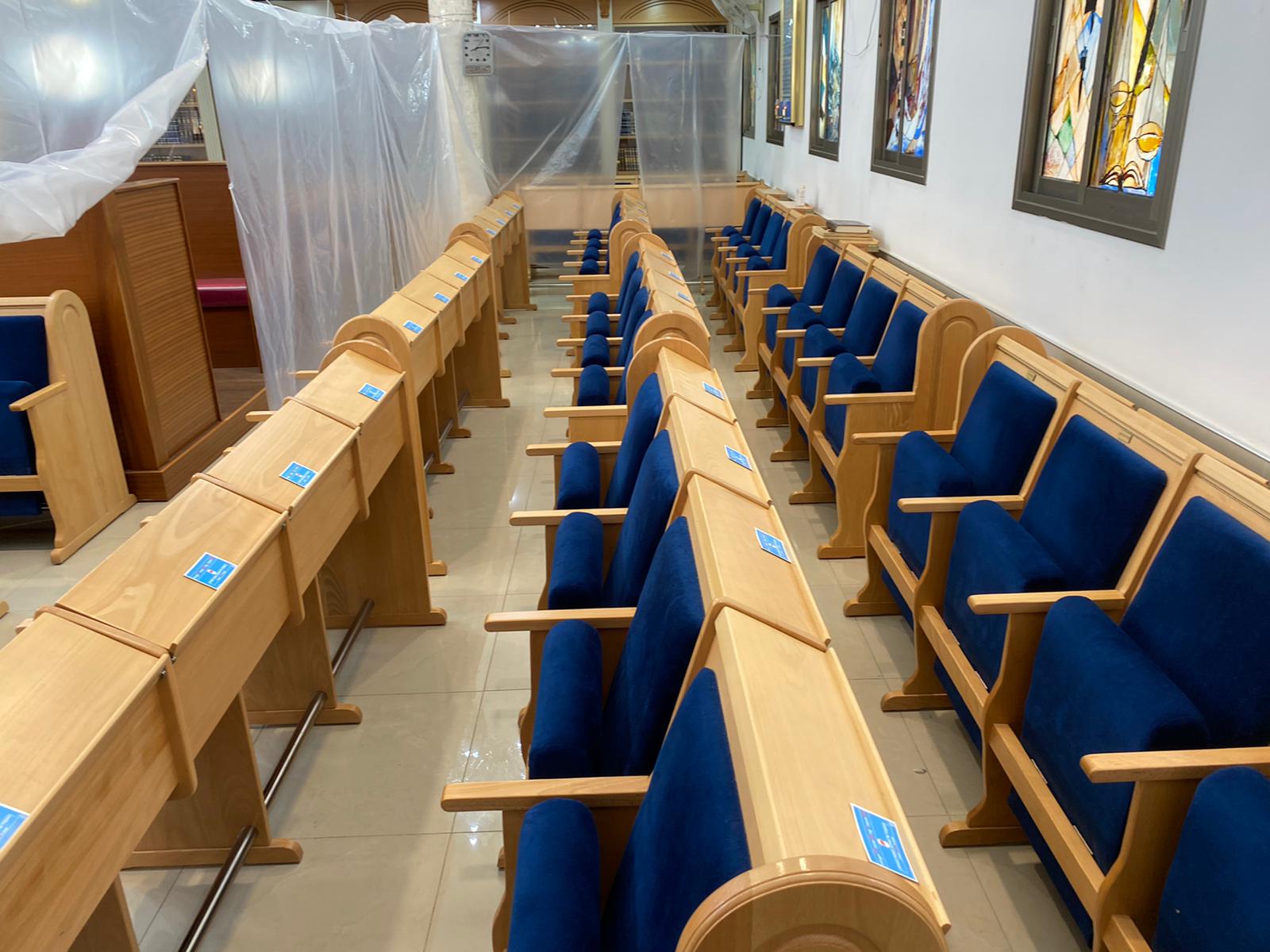
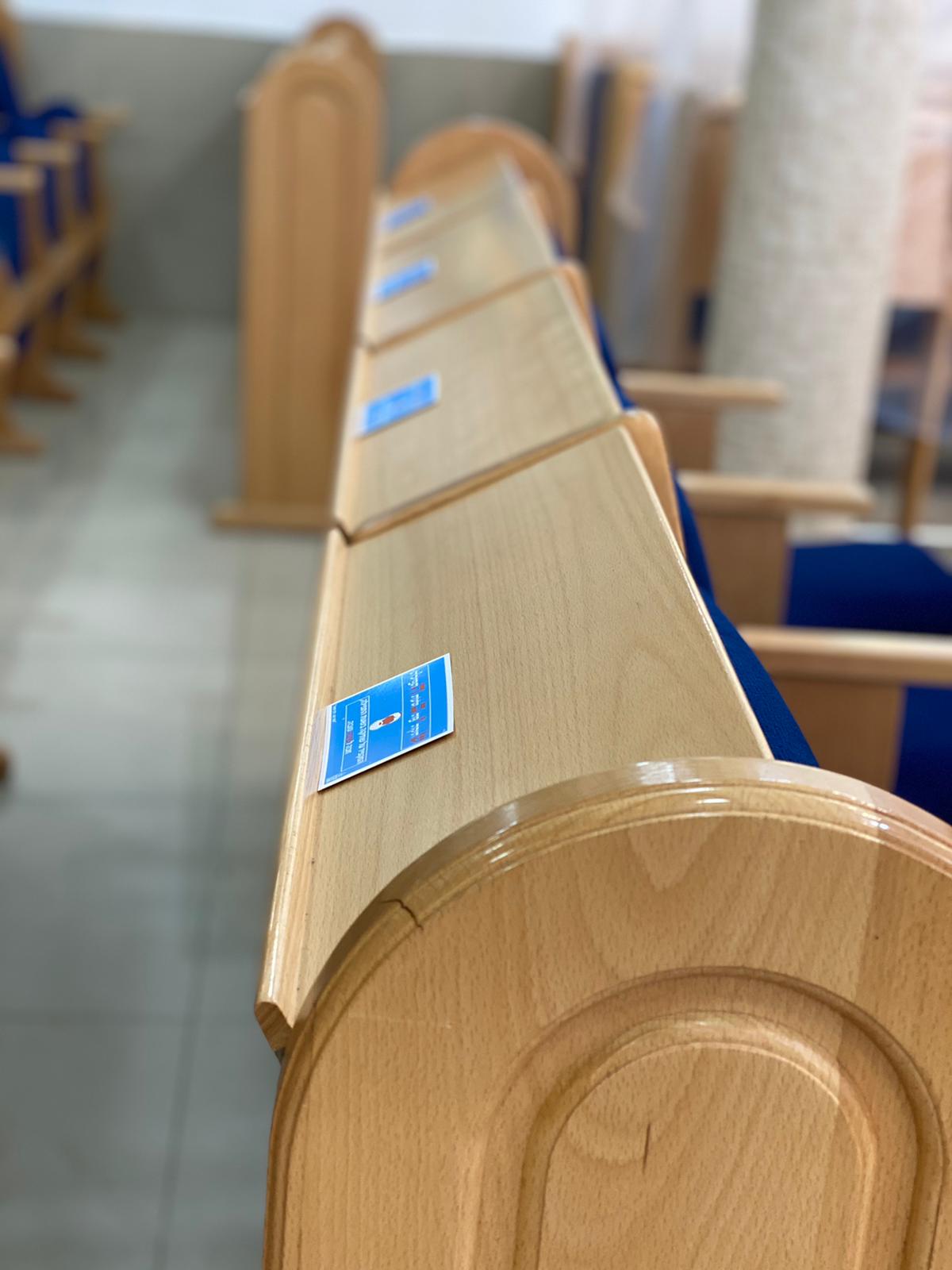
Inspiring and Clever Messages
The posters he's referring to are certainly unique. They are colorful and eye-catching, featuring clever and striking slogans that sometimes bring a smile. For example:
"What's clapping?
Clapping hands as a sign of appreciation or excitement
You get applauded in the synagogue
So you stop talking"

Or:
"What is continuity?
Consistency, uninterrupted existence
Stop the talking
Not the continuity of prayer
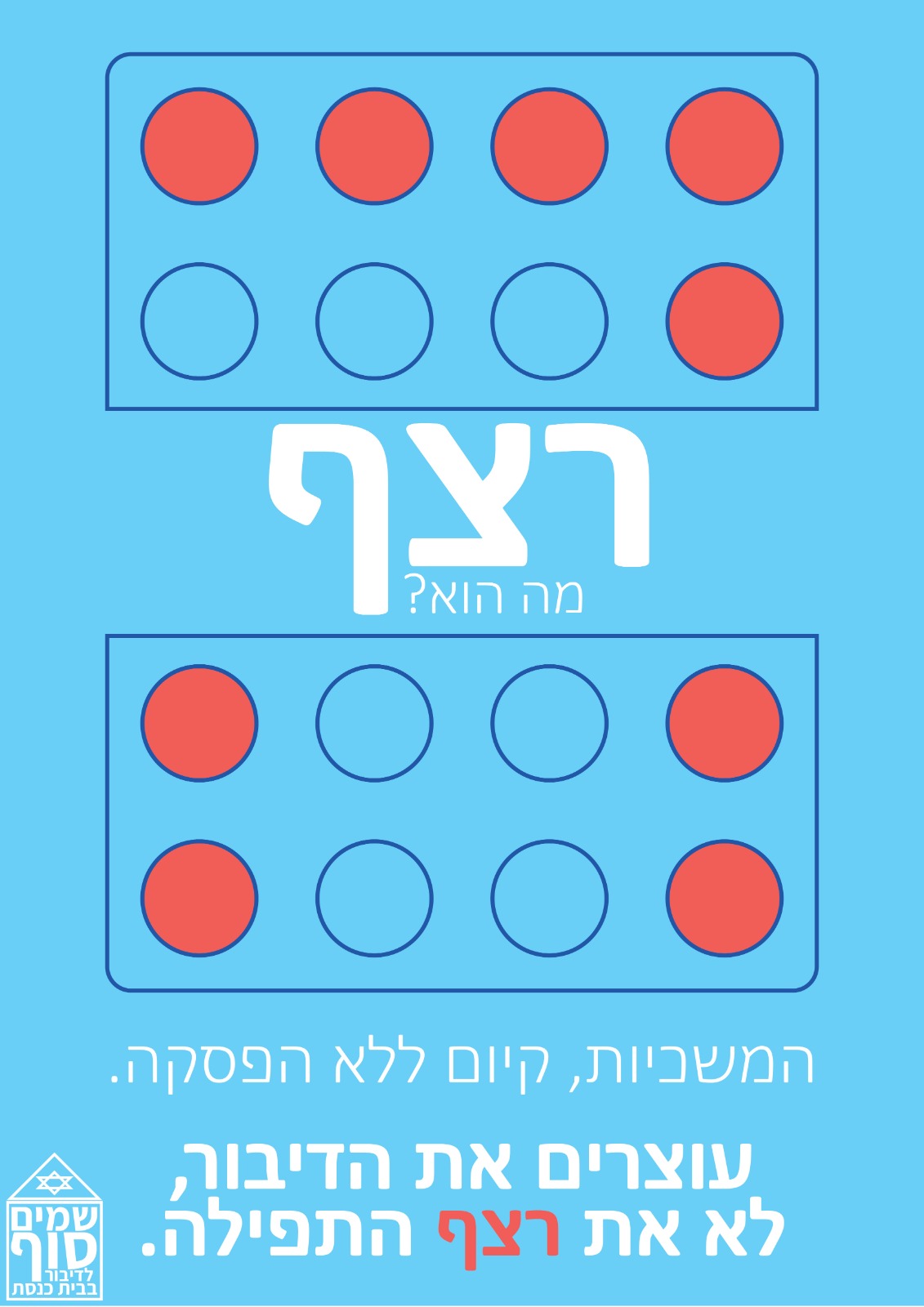
Or another example:
"What is stop?
A road sign instructing
To stop and give right of way
Stop the talking
The right of way is for prayer."
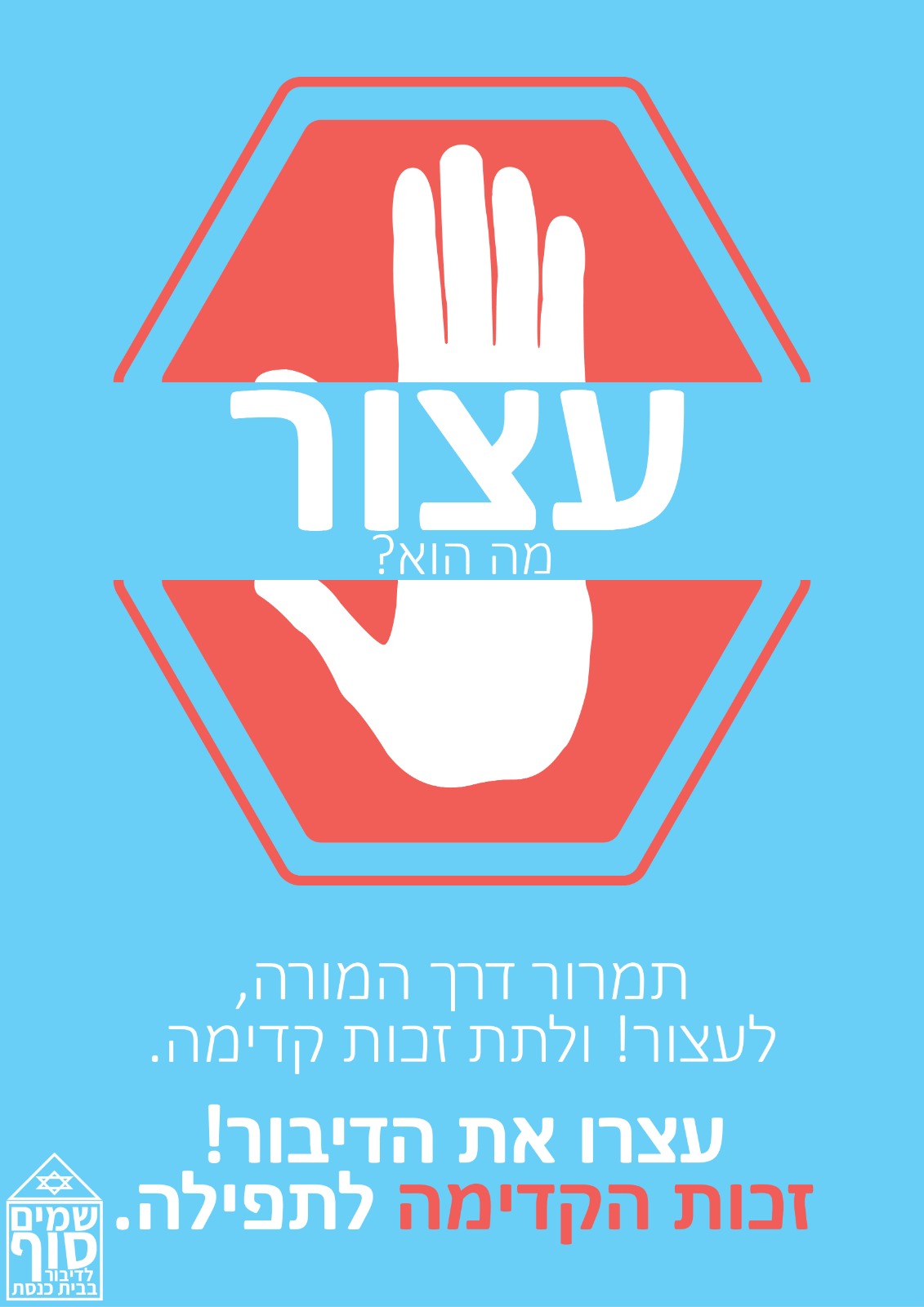

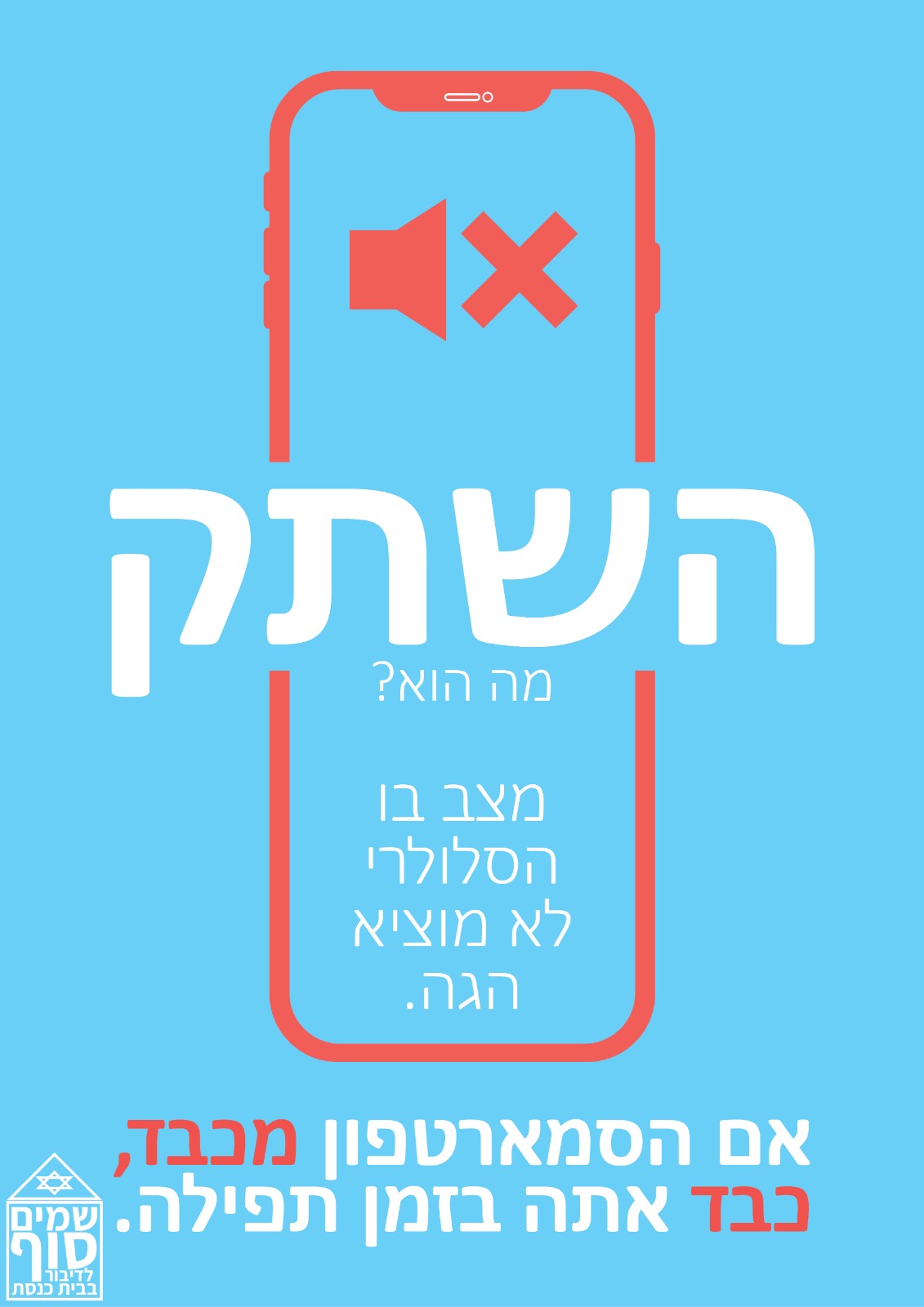
The Goal: To Strengthen and Be Strengthened
Where did the ideas for the poster slogans come from?
"I initiated the slogans with my graphic designer, Tiran Semadja, and received approval from Rabbi Rotem Hazan. He also provided me with the sources. The graphic designer executed it perfectly and in an interesting way. Essentially, we sought ideas that were as clever and wordplay-based as possible to avoid offending people but also to make them smile while bringing attention to the matter."
He also points out that it was important for him to prepare a variety of slogans so they can be changed from time to time. "We all know that in synagogues, signage usually states 'Do not talk during prayer,' or similar wording, but people still talk because they've become accustomed to the sign's presence and don't notice it anymore. When we constantly change the posters, people pay more attention to them."
Do all the slogans pertain to talking during prayer?
"Initially, that's the focus, but over time I intend to move on to the topic of mobile devices that need to be in 'off' mode, and then I'll address the topic of gossip and I have an entire series of ideas."
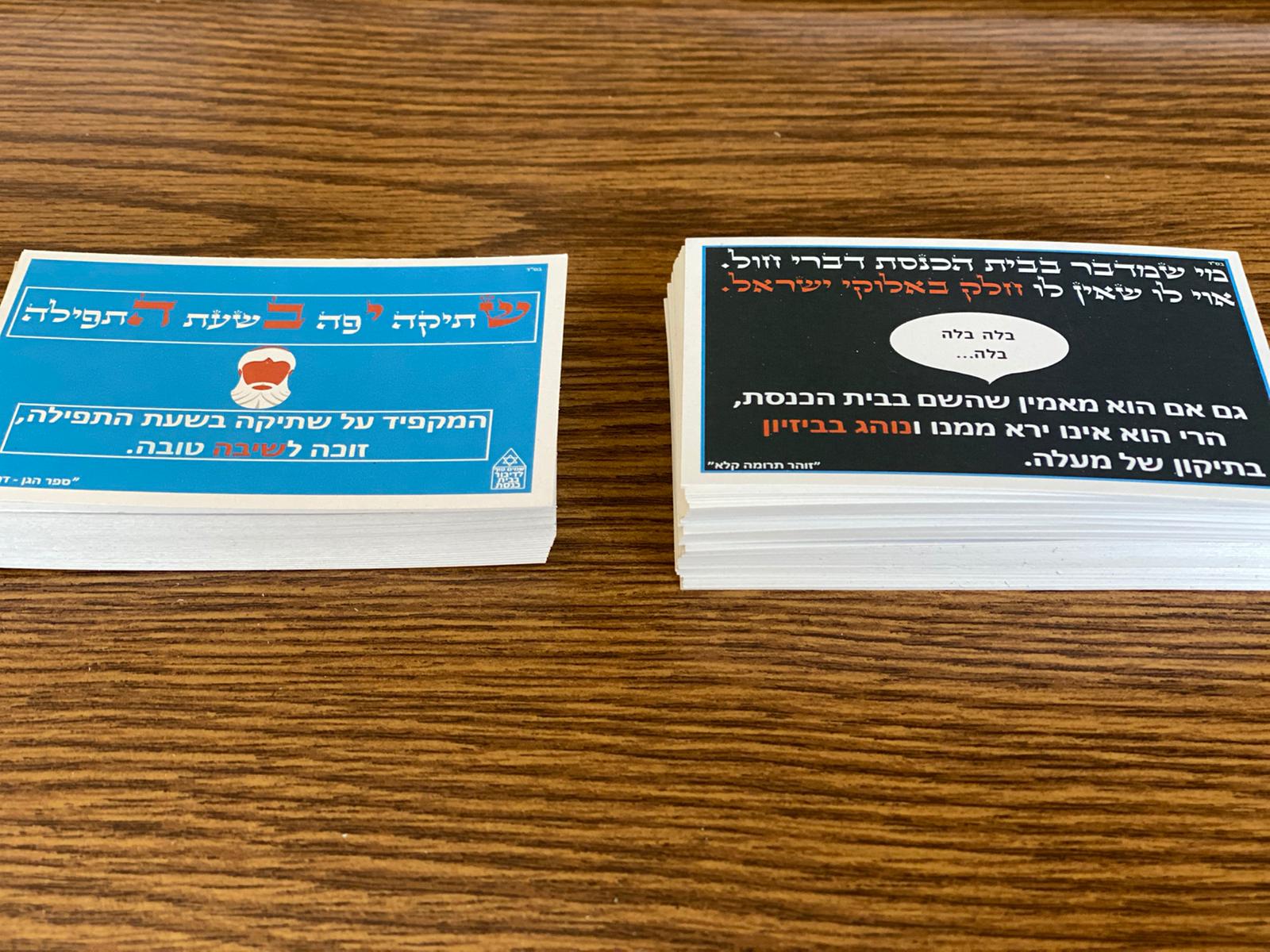
But the posters are only part of the activity. "In addition to them," he notes, "we also distribute cards—somewhat larger than a business card. On one side, there's a sentence that describes what a person gains by keeping silent in the synagogue, and on the other side is what he loses. Of course, everything is backed by sources. For example, we state on one side of the card that a person who keeps silent in the synagogue is rewarded with a good life, and on the other side, it reads: 'Anyone who talks mundane talk in the synagogue—woe to him, he has no part in the God of Israel.'"
But if you're distributing these cards to people, isn't that exactly what it means to reproach?
"My primary intention is for the cards not to be handed out, but rather placed on the synagogue benches, among all the congregants, without reproaching anyone specific. However, I aim and hope that the wardens and rabbis will take the educational aspect seriously. They will talk with the congregants about this matter and explain that when someone sees their friend stumbling, they can quietly place the card in front of them without words, just shifting their attention. They will also clarify that the claims are not directed at any specific person. We can all make mistakes, and the purpose of the cards is to remind us of the great importance of paying attention."
From Eilat Comes the Message
How are people's reactions to the posters you've hung?
"I must say I was very moved when I saw how warmly the posters were welcomed in synagogues. I heard from wardens who said they hung them up and noticed an immediate improvement on the issue. I hope they indeed help and are beneficial, as that was the goal."
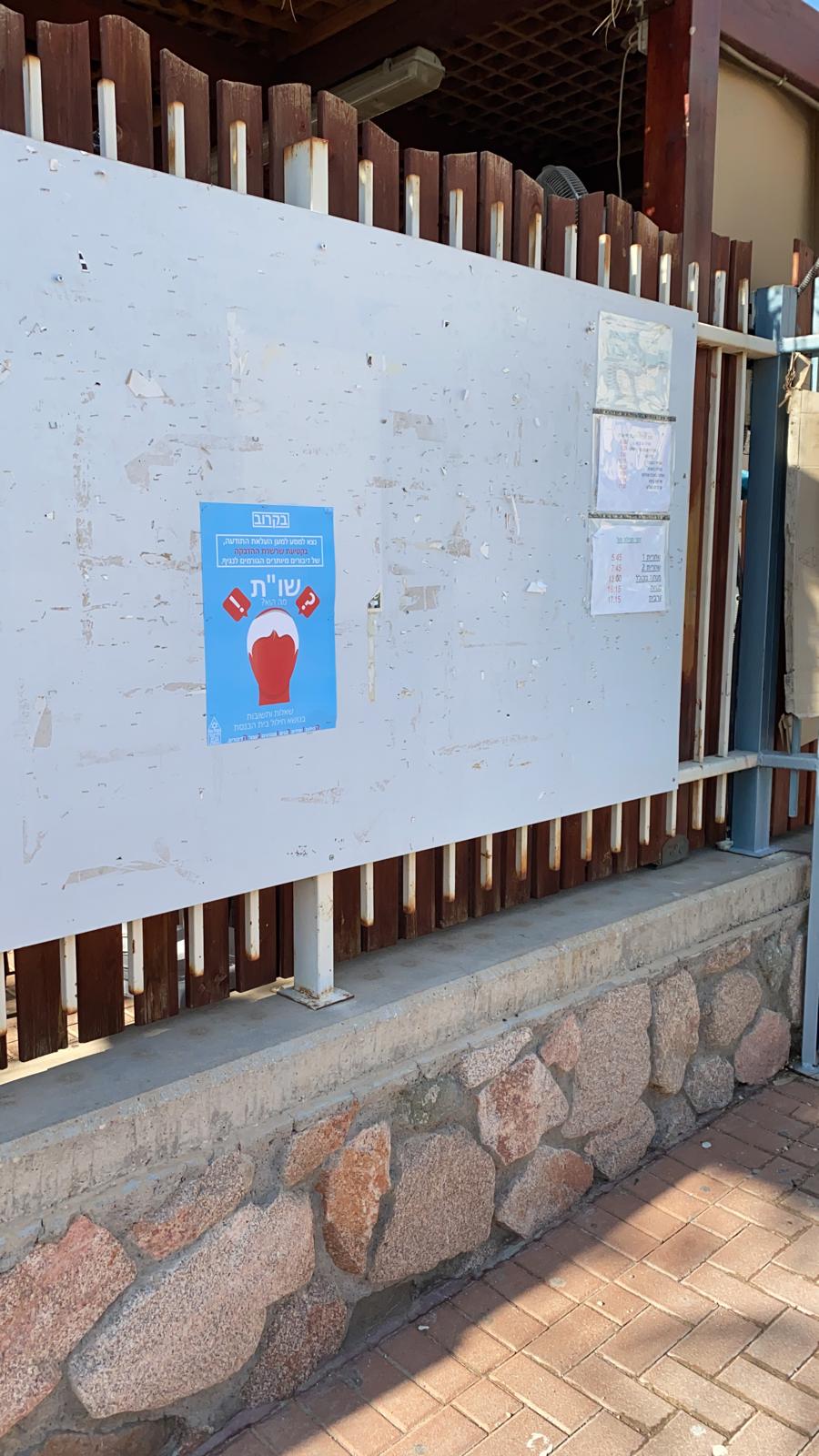
Aren't you afraid the posters will distract congregants instead of helping them focus on prayer?
"I did think about that, but there's no end to this, because any bulletin or book you bring into the synagogue can be a distraction, so should we not publish it? What I must emphasize is that I very much request that the wardens hang the posters only on the bulletin board outside the synagogue. People will come to pray and see the posters waiting for them outside, and when we change the poster after a month, the different graphics will catch their eye, and they will continue to follow with interest. The cards distributed within the synagogue contain very short sentences, not enough to be a distraction. In any case, I think it's better for someone to read a short, encouraging sentence than to go and talk mundane things with their friend during prayer."
Finally, one must ask, why is it that the message is coming from Eilat?
"I believe the answer lies in the question itself," he answers, "because when you find yourself in such a city, you need to strengthen yourself more than usual and really build fence upon fence. That's what I did. I hope to see the results materialize as well."
To contact: ecc2008@icloud.com

